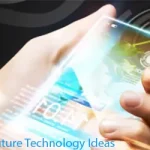Top 10 Technological Inventions
Top 10 Technological Inventions Changing the World: Lottery Sambad presents the top ten technological discoveries, ranging from advancements in AI large language models to quantum computer advances. Numerous ground-breaking inventions have had a significant impact on the technical environment.
Technology Magazine examines ten of the most significant inventions of the last year, ranging from sophisticated robotics solutions to developments in quantum computing and, of course, the seemingly inevitable march of generative AI.
10 Technological Inventions
21st-century technological innovations
Top 10 Technological Inventions: With the advent of numerous technological marvels, the 21st century has drastically changed our way of life.
Artificial intelligence, self-driving cars, and other technologies have not only improved our everyday lives but also altered social standards.
As technology continues to grow, so too do our relationships with the outside world and with one another, ushering in a new era of ease and progress. These five technical advancements have had a profound impact on how we work and live.
Organ 3D printing and quantum computing
Technological advances in 3D printing have made it possible to create organs, providing hope to individuals in need of organ transplants.
Furthermore, data processing has been completely transformed by quantum computing, which uses qubits to harness the power of quantum physics and enable lightning-fast information exchange.
Autonomous vehicles
Self-driving cars with sensors, cameras, and artificial intelligence (AI) show promise for safer and more effective transportation, even though technology is still developing; firms like Tesla are making significant progress in this area.
Space travel
With plans for projects like SpaceX’s trip to Mars, visionaries like Elon Musk are reinventing human existence beyond Earth.
However, there are still major scientific and financial obstacles to overcome before space tourism becomes a reality.
Intelligent cities
Globally, “smart cities” are characterised by sophisticated technological integration and infrastructure, which promote sustainable urban growth and improve the standard of living for locals.
Computer-Brain Interfaces (BCI)

Businesses like Elon Musk’s Neuralink are at the forefront of brain-computer interfaces (BCIs), which allow for direct brain-to-external device communication and have potential uses in everything from entertainment to healthcare.
Healthcare applications of artificial intelligence
AI is transforming healthcare with applications like generative AI chatbots that can quickly and accurately respond to medical questions. AI is also helping with diagnostics, optimising workflows, and enhancing patient care.
AR, or augmented reality
Through apps like Pokémon GO and Snapchat, augmented reality (AR) technology superimposes digital content onto the physical environment, improving user experiences in a variety of industries, including gaming and retail.
Nanotechnology
Nanoscale material manipulation provides new avenues for creative solutions in a variety of fields, including electronics and health, with potential uses in drug delivery and renewable energy.
Fusion force
Although it faces many technological obstacles, the pursuit of fusion power—the ability to use nuclear fusion reactions to produce clean, abundant energy—holds great potential for meeting the world’s energy demands.
Blockchain-based technology

With its improved security and efficiency in data transfers, blockchain—a decentralised and transparent ledger system—has revolutionised a number of industries, including finance, supply chain management, and cybersecurity
Technological Inventions Changing the World
Top 10 Technological Inventions: These amazing discoveries opened the door for further breakthroughs that have changed the course of history. All have helped history flourish and change our surroundings.
From the development of the earliest stone tools or the wheel to machines and technologies that once paved the way for a more contemporary globe, technical inventions have changed the world, improved the lives of our predecessors, and helped us grow and build the future we live in today.
There are several innovations on the list. These are a few of the innovations that fueled the world’s development and prosperity.
The press used for printing
Gutenberg’s invention, which he developed in the middle of the fifteenth century, allowed books to be produced in large quantities. It consequently facilitated the dissemination of knowledge, literacy, and ideas—particularly religious ones—as well as the establishment of libraries throughout Europe.
a significant revolution that hastened the Renaissance’s departure from the Middle Ages. The Bible was the first document to be printed using this machine.
The printing press popularised the notion that machines replace workers, despite creating a strong market for writers, booksellers, and printers among other professions.
The boiler
James Watt, a Scottish inventor, created the steam engine in 1775, which changed transportation and technology during the 19th century and propelled the First Industrial Revolution.
This revolution quickly transformed the economy from one centred on trade and agriculture to one that was industrialised and had a far higher production capacity. This technological advancement led to the development of steamships, locomotives, and even the first cars.
Additionally, the path was cleared for the development of other kinds of combustion engines and aeroplanes. Immediate effects on employment resulted in the emergence of urban centres and middle classes.
The lightbulb
Many others tried incandescent lamps or bulbs before Thomas Edison. Though not precisely so, he improved upon the inventions of others in the field of electric lighting, including Humphry Davy, Matthew Evans, Warren de la Rue, and Joseph Wilson Swan (with whom Edison disputed the claim of inventor). He is credited as the inventor (in 1880).
The phone
Alexander Graham Bell, a Scotsman who worked as a speech and hearing specialist (his mother and wife were both deaf), studied voice transmission in an effort to enhance the telegraph and eventually received a patent for the telephone in 1876.
This invention made instantaneous speech possible over large distances, revolutionising communication. Until the telephone network was established, making a call required physically connecting the wires in the early days.
Insofar as it ushers in contemporary civilization, it is among the greatest achievements of the Second Industrial Revolution. It established the groundwork for mobile telephony, without which the world would not function as it does now.
The aircraft
The Wright Flyer, the first motorised aircraft piloted by a human, was invented in 1903 by the Wright brothers. Even though the flight was short—just 12 seconds—this experiment that defied gravity helped establish the groundwork for aeronautical engineering.
Others were motivated to build commercial aircraft by their designs. Charles Lindbergh rose to fame in 1927 as a result of his solo transatlantic flight.
Trade, culture, and tourism were all enhanced by this technological brilliance, and today the aviation sector is essential to the prosperity of the world economy.
The individual computer
Computers have completely changed how people live and work by making chores simpler, storing information, and processing data fast and effectively.
The path to personal computers was paved with the 1947 creation of the transistor, also known as a semiconductor. This part, which took the role of the vacuum tube, allowed electrical equipment to becoming smaller and more dependable.
As the original personal computer, Kenbak-1 is credited to John Blankenbaker. Microprocessors were a significant advancement in the creation of the PC (1971).
The Micral was the first personal computer to use a microprocessor, released in 1973. The Xerox Alto (1973), despite never being released, was the precursor to home computing as it was the first device to use a mouse and graphical user interface.
The first computer to use the Microsoft Basic programming language was the Altair 8800, which was introduced in 1975 and was created by Microsoft’s founders Bill Gates and Paul Allen.
Online
Without preceding trials and technologies, the genesis of the network of networks would not have been known, as has been the case with most technological inventions that have revolutionised society.
The Internet got its start in 1969 when four academic computers were connected to ARPAnet. Vinton Cerf created the “transmission control protocol,” or TCP, in the late 1970s to facilitate file transfers between computers.
Tim Berners-Lee’s 1991 launch of the World Wide Web, which completely changed society, was made possible in large part by this discovery. It still changes now, bringing with it new ways to interact as well as advancements in the social, cultural, and economic spheres.
The Internet gained popularity and was introduced into Spanish households with the introduction of Telefónica’s Infovía service in 1995.
The cell phone
The first mobile phone that was tiny enough to be carried about was the Motorola DynaTac 8000X, which had a 30-minute battery life and was created by engineer Martin Cooper. It was released in 1983.
The original mobile phone was only meant for talking, but as they developed, the devices could do more.
For example, they could send emails or SMS messages, which opened the door for smartphones, which can now browse the internet, take pictures, listen to music, navigate using GPS, and update social media, among many other things.
It is now regarded as one of the most important technological innovations for both personal and professional use.
synthetic intelligence
Alan Turing, the father of artificial intelligence, is also considered the progenitor of modern computing. But the phrase didn’t exist until 1956, when Logic Theorist—the first artificial intelligence program—was unveiled at a momentous conference.
These days, this technological innovation has infiltrated our daily lives through ChatGPT, the Internet of Things, voice assistants, chatbots, driverless cars, real-time interpreters, artificial intelligence, and real-time translation.
Future applications and purposes for thinking machines will be unimaginable to us now, and they will further change the world.
Concluasion
Top 10 Technological Inventions: Here we have detailed discussion about top 10 technological innovations that changed the world. You can know about all those technologies from here. Also, we have detailed some special variables here. Hope you can understand very easily. Stay tuned for more content like this. Do not forget to visit this address regularly. Also, don’t forget to share our address with everyone.


